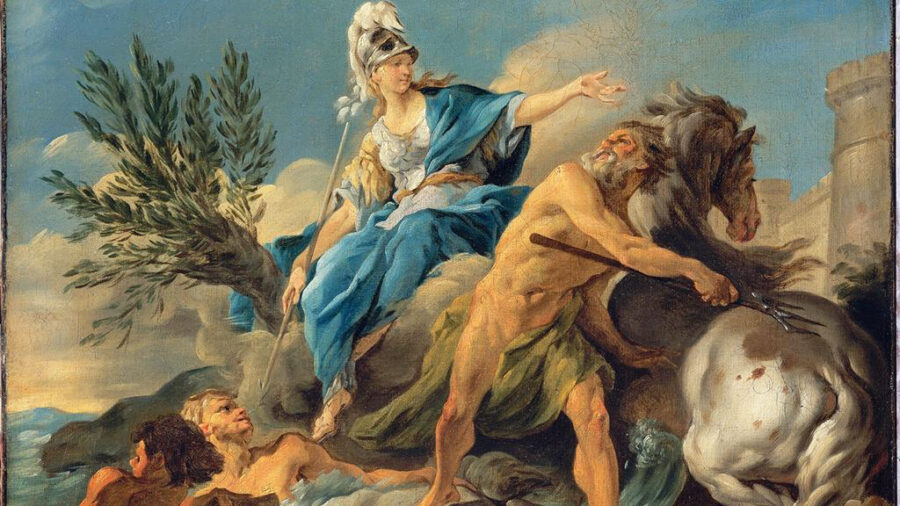
The ancient Greeks
The ancient Greeks said that the goddess Athena had created the olive tree. According to ancient Greek mythology, the olive tree was a gift by the goddess Athena to the city of Athens, when a competition between her and the god Poseidon took place in order to decide on the city’s patronage. The legend says that Poseidon planted his trident in the sacred rock of the Acropolis creating a salt spring. This spring was later called the Sea of Erechtheus. When Athena struck the rock with her lance, an olive tree full of olive fruits sprung up. The Olive Tree, which was planted by Athena on the Acropolis, was called “Moria Elea”and was considered as the first olive tree to exist in Athens and around the world. This was regarded as a promise of glory and prosperity for the city.
From that day on, Athena became the goddess of the city of Athens. Sometime later, one of Poseidon’s sons tried to uproot the Athena tree, but he injured himself in committing the sacrilegious act and died. So the Athenians decided to build the Acropolis on that point of the city and to have the sacred plant of the olive tree be guarded night and day by the soldiers.
It is said that the first olive tree is still standing in front of the Parthenon – which was built by Pericles to honour the Goddess Athena between the 477 and the 432 b. C. – in Athens and that in ancient Greece anyone caught while destroying an olive tree was condemned to death penalty.
In ancient Greece, athletes ritually rubbed it all over their bodies. It has been the fountain of great wealth and power, anointing the noblest of heads throughout history. Olive oil was used to produce both medicine and cosmetics: Hippocrates called it “the great healer” and Homer “liquid gold”, Galen praised it for its positive effects on health.
In ancient Greece, the olive held an important place both in the nutrition of citizens and in the city’s economy. In “Oedipus at Colonus” Sophocles calls the olive “nurturer of children.” It was a symbol of peace and whoever offered an olive branch was received with respect. An olive branch was also the prize awarded the winners at games. In the Panathenaic Games, the winner of the footrace received as a prize 700 amphorae of top-quality oil (which must have corresponded to about 2.5 tons) and the winner of the chariot race received approximately 5 tons. The athletes usually sold the oil, and the amphorae, outside Athens at a significant price.
But the most honourable award was a humble wreath, made from wild-olive branches from a sacred grove near the temple of god Zeus at Olympia. The owner of the olive ‘crown’ was guaranteed fame and respect for a lifetime. In honour of this ancient tradition, the winners of the 2004 Summer Olympics in Athens were also presented with olive wreaths.
From early civilisations to the present day, the olive tree has retained its symbolic power as a global emblem of peace, victory and purity.
